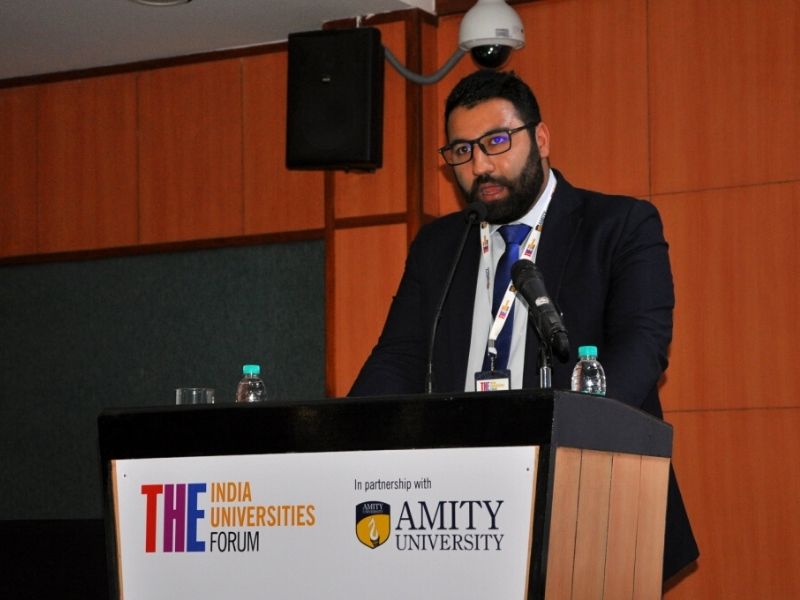To deliberate upon some of the key challenges and opportunities faced by the universities in the subcontinent, Times Higher Education (THE) started the India Universities Forum in partnership with Amity University at the university campus in Sector 125, Noida. The forum witnessed a host of National and International educators from higher education, industry and government come together and discuss the globalisation of higher education in India and its future.
During the day, a data masterclass by Phil Baty, THE – Chief Knowledge Officer was held, who explained the new rankings’ methodology and presented insights into India’s performance from the pilot results obtained by THE rankings pioneered in 2019. Calling India one of the most dynamic countries in the world huge demographic challenges and opportunities, Baty also remarked how the country’s participation has very rapidly grown in the rankings arena.
“Over the last 3-4 years, India has dramatically improved its engagement in global benchmarking and data analysis, which is a very positive sign as it does ensure that Indian universities stay competitive. As a result, we are starting to build a really powerful picture of Indian Higher Education but only at the research-intensive end,” said Baty.
THE University Impact Rankings are the world’s first rankings to measure universities’ social and economic impact, based on the United Nations’ Sustainable Development Goals (SDGs). These rankings recognize excellence in higher education not through traditional metrics such as research and prestige, but through an innovative range of performance indicators, looking at a university’s stewardship of its resources, its outreach and its research in specific fields relating to the SDGs and teaching the next generation to adopt sustainability in their lives.
Ritin Malhotra, Regional Director (South Asia), THE, conducted a reputation management masterclass on ‘Branding and Communications in Indian Higher Education’ to assist the university in identifying key factors to improve their reputation. He shared how a lot of Indian universities were engaged in interesting research work but needed to work on their communication skills to make that research count in the global arena.
“Asian universities should go for the “low-hanging fruit” of communications in the form of English websites, available in-house experts and faculty members to be university brand ambassadors, social media and regular press releases. Universities should look for authentic and unique branding to make themselves stand apart,” advised Malhotra.
Speaking on ‘Faculties of the future: how universities in South Asia can recruit more efficiently’, Dipit Sharma, Hiring Solutions Sales Executive – THE, said, “Strategic hiring along with creating a framework and process to seek out jobseekers, as opposed to them seeking you out would be the key.”
He also spoke about how lack of students, with only 11.1% of the Indian youth having the opportunity to pursue higher studies as compared to 20% of Chinese youth is preventing Indian universities from building world class faculties as compared to China.
“The for-profit practices of Universities being content with steady cash flows and losing sight on future goals coupled with tensions between students and administration, the establishment is putting brakes on the nation. With a shortage of resources creating a lack of funding and hampering research and with teachers and professors seeking opportunity overseas creating shortage of skilled workforce, a lot needs to be done. We are losing the best of the minds to foreign countries who provide strong opportunities to grow,” said Dipit.
Posted in Campus, News



























